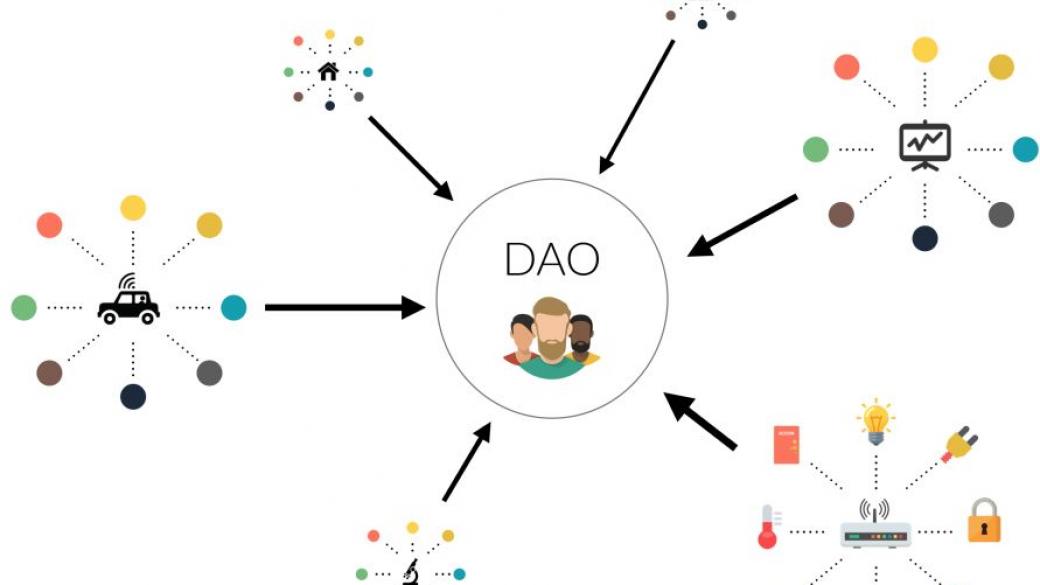The Era of the Companies with no Managers Is Coming
Horizontal organisations are already entering the business world and challenging the traditional corporate management model

A team of dozens of different specialists - developers, designers, project managers, copywriters and many others - works together on a large-scale project. All this would be quite normal, except that they are all in dozens of different locations in several countries; almost none of the team members ever meets the others, and most do not even know each other. And most of all - all the work is done without the involvement of any supervisor. Still, they work on a large and extremely complex project worth several million dollars. This example is not a fiction, but is quite realistic and shows the benefits of a model that is rapidly gaining popularity in the technology circles -
Decentralised Companies
These are business organisations in which the management is replaced by horizontal structures and teams, coming together for different tasks or, ultimately, by a system of rotation of managers among the team members. This new trend has most of its fans in the circles of the IT freelancers, startups and technology specialists. Therefore, it is no surprise that among the first most prominent examples are mostly companies from the software industry and other areas of the information technology.
Among them is the name of the game developer Valve Corporation - a multi-billion company that is the creator of some of the most popular video games in the world - Half-Life, Portal, Counter-Strike and Team Fortress, as well as the fast-growing online platform for distributing Steam games. Other popular companies, whose management is completely or partially horizontal, are the GitHub software platform, which was purchased last summer by Microsoft for USD 7.5 billion, as well as the Finnish software company – Reaktor, which has more than 400 employees and an
Entirely Flat Structure
composed of self-managing teams. In contrast, Valve and GitHub follow a more balanced model. In the first, there is a rotation system for changing team leaders, and in the second one, an intermediate management level was created in 2014. However, both have embraced the concept of remote work, and their employees are scattered around the world.
The truth is that horizontal organisations are not new, and this model dates back to the dawn of private business. However, it was given a new impetus with the development of technology. In particular, business collaboration and teamwork platforms in recent years have added a number of new coordination options, regardless of team members being in a building or at different locations on the planet. The introduction of open source software has created a culture of software development by communities scattered all over the world.
The biggest change, however, comes with the development of blockchain technologies that create settings for the emergence of a new type of fully decentralised companies. Blockchain allows the
Transparent and Safe Operation
of different systems on the basis of clearly defined rules. In this way, both payment instruments, such as bitcoin, and all kinds of other structures, including companies and public organisations, can be created, and according to some technology supporters, entire countries can operate through a blockchain.
Ethereum is one of the most remarkable startups, working with this open technology, which has already created its own cryptocurrency of the same name, as well as a platform for using blockchain as a service. Through it, anyone could create their own organisation, which can operate through a system of the so-called “smart contracts”. This type of “flat” companies already have their name - DAO (Decentralised Autonomous Organisation), and two years ago, the first among them was created – The DAO, which managed to raise USD 150 million through shared funding.
The advantages of horizontal companies are that they are more flexible and operational, and practically combine the strengths of large corporations with the energy of the small startups. What is more, they give much more power to regular employees, which is motivating and allows the more talented among them to contribute more to the development of the organisation. At the same time, this model has flaws, because by eliminating traditional management, companies will not be able to seize the potential of truly good managers, which in traditional businesses often plays an important role in the development and stability of the companies.

 Alexander Alexandrov
Alexander Alexandrov 


